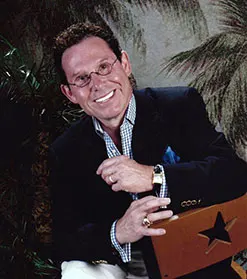
Patient Info
Dental Implants
Cosmetic Dentistry
General Dentistry
Wondering, "When can I eat solid food after tooth extraction?" Tooth extraction is a simple dental procedure, and though your dentist offers post-operative instructions, the lingering question is about resuming solid foods.
Let's explore to make sure you have the information about "When can I eat solid food after tooth extraction?" and "What to avoid after tooth extraction."
Your mouth needs time to heal after tooth extraction. Consuming solid foods too soon can disrupt the healing process, dislodge the blood clot that forms in the extraction site, and lead to complications like dry sockets. To facilitate proper healing, it's crucial to adhere to the recommended dietary guidelines during the initial recovery period.
Eating solid foods too early after tooth extraction poses several risks. These include increased pain, delayed healing, a higher chance of infection, and the potential for damage to the extraction site. Following your dentist's guidelines ensures a smoother and quicker recovery.
During the initial day's post-tooth extraction, opt for a soft-food diet. This includes:
While focusing on soft foods, it's equally essential to avoid certain types of foods that hinder the healing process. Steer clear of:
The timing varies for each individual, but a general guideline is to wait at least a week before reintroducing solid foods. However, it's crucial to pay attention to your body and only progress to solids when you feel ready. If you experience pain or discomfort, stick to softer options until you're more comfortable chewing.
Most dentists recommend avoiding solid foods for the first 24 hours after tooth extraction. After this initial period, gradually introduce softer solids before transitioning to a regular diet.
It is important to choose the right food after your tooth extraction to heal the extraction site. There are several nutrients that actually help in healing.

When reintroducing solids, prioritize easily chewable and digestible options. Examples include:
Certain nutrients play a crucial role in the healing process. Including foods rich in zinc, vitamins C and A, and protein can promote faster recovery. Consider adding:
To make your post-extraction journey smoother, consider these recommended soft foods:
While it's advisable to avoid chewing on the side of the extraction site, if you can comfortably chew on the opposite side without causing discomfort, it's generally acceptable. However, always follow your dentist's guidance.
If you experience pain while eating, consider taking any prescribed pain medications before your meal. Opt for softer food options and chew slowly to minimize discomfort.
The key to a successful recovery after tooth extraction lies in giving your mouth the time it needs to heal. While the temptation for solid foods may arise, patience is crucial for avoiding complications. Gradually reintroduce solid options, listen to your body, and prioritize soft, nutritious foods to support healing.
For more personalized guidance on “When can I eat solid food after tooth extraction?” and your post-tooth extraction diet, consult our dentist, Dr. Byron Scott, at Springhill Dental Center, AL. You can Contact us online or call us at (251) 265-7808 for New Patients and (251) 343-1521 for other callers.
Remember, a well-thought-out diet contributes significantly to a smooth recovery.
It's advisable to avoid crunchy foods initially to prevent any disruption to the healing process. Stick to softer options.
Yes, some discomfort is normal. If the pain still remains or worsens, consult your dentist.
Gradually reintroduce normal foods as your comfort level allows. Follow your dentist's recommendations.
It's best to stick to lukewarm or cold beverages during the initial recovery period to avoid irritation.
Foods that are rich in vitamins and minerals, such as fruits and vegetables, support the healing process.
My visit was incredible. I had my “All on Four” appliances cleaned, and it was a painless and thorough experience. Dr. Scott and all his staff are very friendly. During the cleaning, Mary was gentle and let me know everything she was doing and how it would feel. She gave me tips on how to clean my implants/appliances better and gave me a small brush to do the underside more effectively. Dr. Scott and Mary suggest cleanings take place every 3 months so I will be back in December.

Dr. Byron Scott is a highly-trained and accomplished dentist. He attended The University of Alabama School of Dentistry and subsequently completed numerous Advanced Studies and Trainings. Dr. Scott is Board-Certified by The Academy of General Dentistry and has earned Mastership status (MAGD), an honor shared by only 1% of dentists. He has numerous memberships and associations, including Diplomate status with The American Board of Oral Implantology (D-ABOI) and The International Congress of Oral Implantologists (D-ICOI). Overall, Dr. Scott has dedicated his life and career to helping patients improve their oral health through expert dentistry. His goal is to help each patient keep their smile healthy, attractive, and comfortable for the duration of their lifetime.
